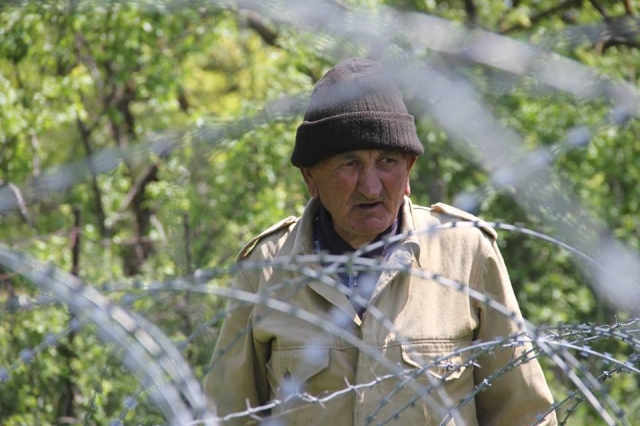Easter a Melancholy Affair for Those Divided By Russian-built S. Ossetian Border Fence
KHURVALETI, Georgia - While Orthodox Christians around the world celebrated the Eastern holiday last weekend, Georgians living near the contact line with the country’s Moscow-backed breakaway region of South Ossetia spent Sunday agonizing over their forced separation from loved ones as a Russian-built a barbed wire fence denied them the right to spend Orthodoxy’s most holy day with their beleaguered family members across the border.
83 year-old Davit Valishvili has been stranded behind the fence since the 2008 five-day war between Georgia and Russia. He is not allowed to cross the border or move freely within the region. His relatives come to the fence line to deliver food, money and whatever else to him, while trying to avoid the Russian patrols that keep watch over the line.
Valishvili - known as Data Papa - and his wife Valia spent the Sunday rolling eggs on the graves of departed family members whose relatives live on the Georgian government side of the line. None have been able to cross the border for the traditional Easter pilgrimage to the village cemetery for nearly a decade.
Dozens of cemeteries and historic churches are separated from their villages after the Russians installed barbed wire fences along the Administrative Boundary Line after the 2008 war.
On Tuesday, the Women's Information Center (WIC) visited Valishvili’s family at the barbed wire fences to deliver humanitarian aid and wish them happy Easter.
“Colored eggs, cake and a bottle of communal wine are traditional for Easter in Georgia. We wanted to bring these special items to the Valishvili family and remind them that they are not alone. Of course, the Russian military personnel don’t like when they have Georgian 'guests' gathering at the barbed wire fence,” Salome Modebadze, WIC representative said.
The WIC used the occasion to call upon all the participants of the peace talks to solve the problem of free movement, particularly for special holidays like Easter.
The cemetery for the Valishvili’s home village of Zemo Khurvaleti is isolated from the settlement, itself, due to the heavily patrolled barbed wire fence. Worshippers are also denied the right to visit the nearby medieval Church of St. George – one of the region’s most important religious sites –as it lies beyond the contact, cut off from its closest village.
The issue of access to farmlands and religious sites during the Easter holiday was a key topic of discussion at the recent Incident Prevention and Response Mechanism (IPRM) summit held in the Georgian town of Ergneti.
The negotiations, however, failed and the two sides walked away without an agreement.
Freshly installed boundary lines unilaterally established by Russian soldiers have separated people on the Georgian side from their farmland, orchards and neighbors.
Georgia and Russia fought two bloody wars over the region between 1991-2008, resulting in the deaths of thousands and the ethnic cleansing of most of the region’s Georgian population.
South Ossetia was later recognized as an independent state by Moscow following the 2008 Russian-Georgian War. By the end of the last decade, Russia had effectively occupied more than a quarter of Georgia’s territory.
International law and the United Nations continue to recognize the region as an integral part of Georgia.
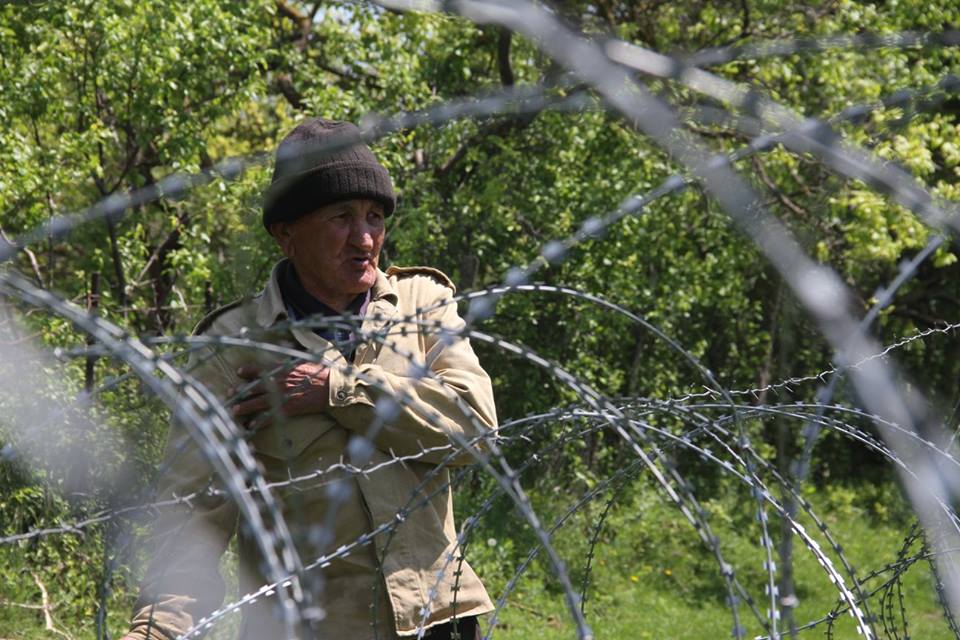
Davit Valishvili behind the barbed wires.
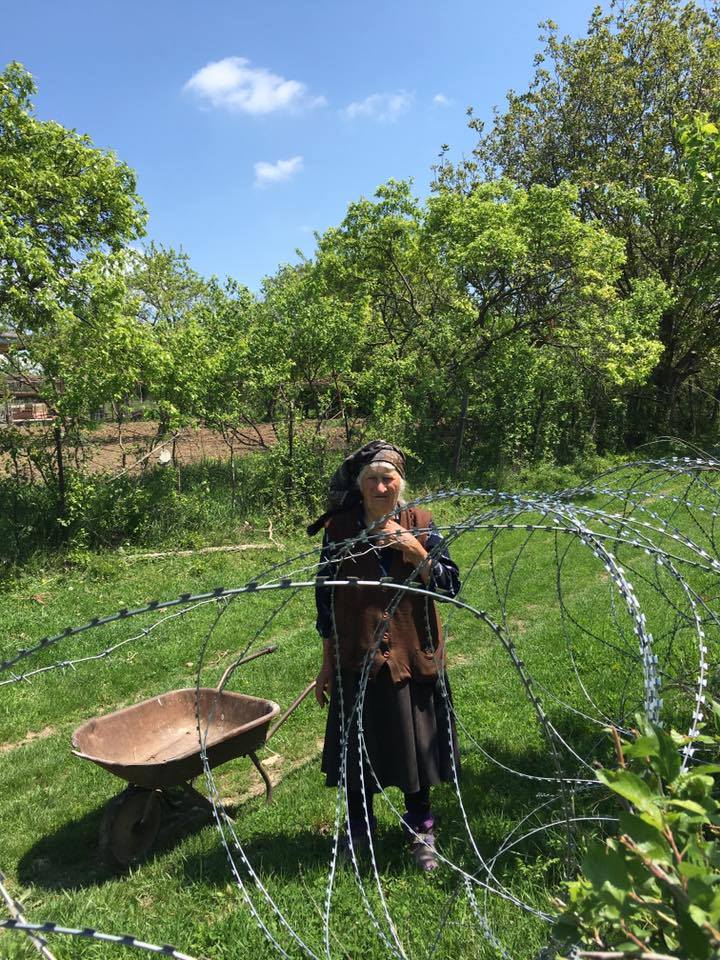
Valia, Davit Valishvili's wife.
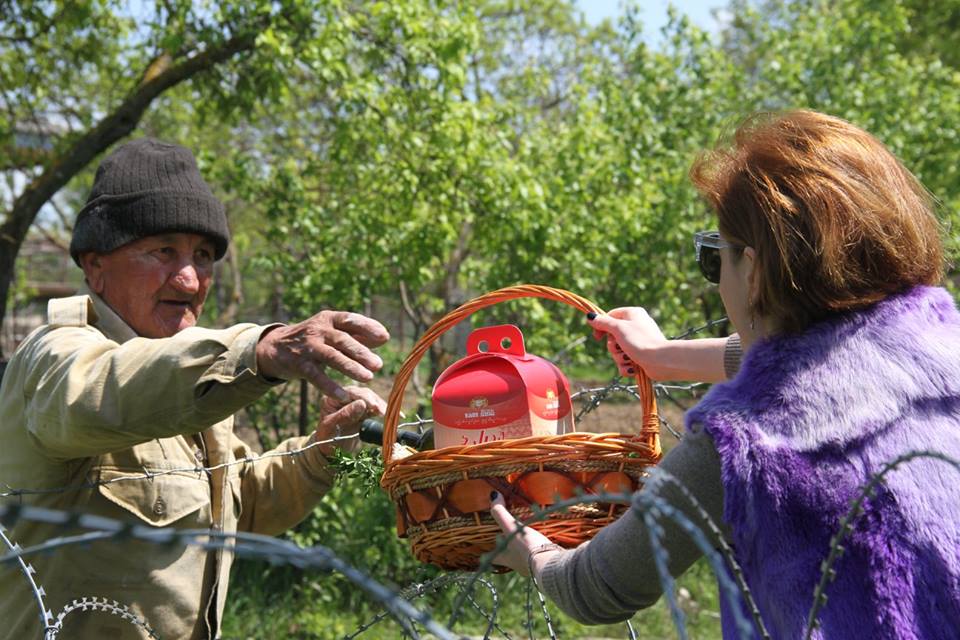
Easter basket for Valishvili's family.

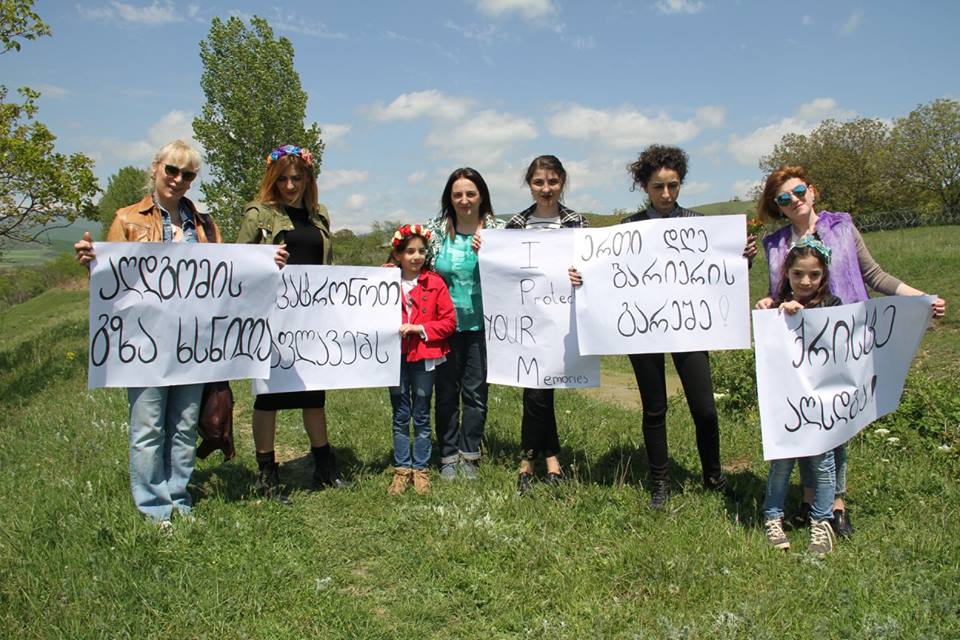
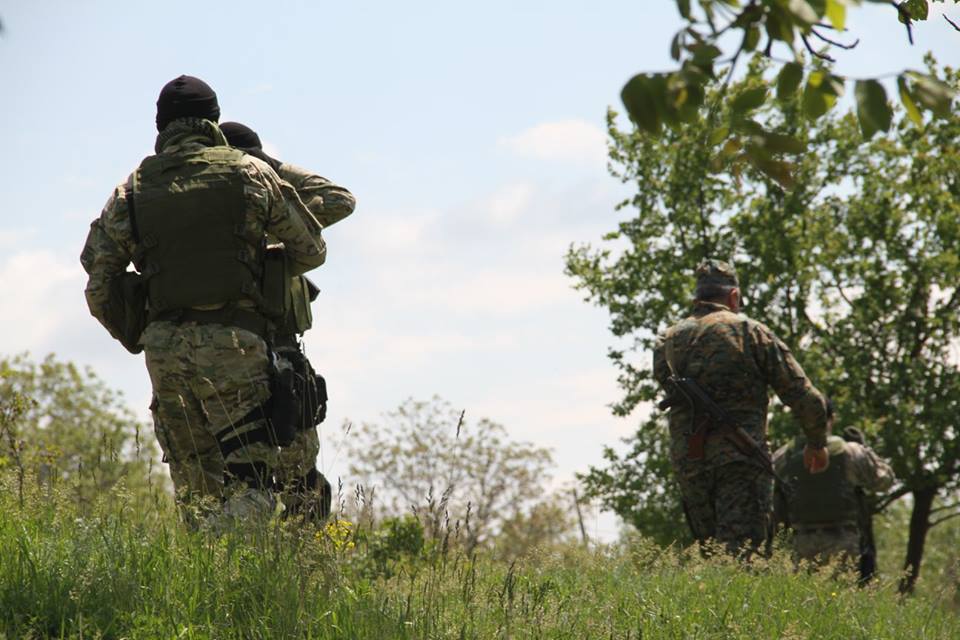
By Tamar Svanidze
Edited by Nicholas Waller
Photos: WIC
